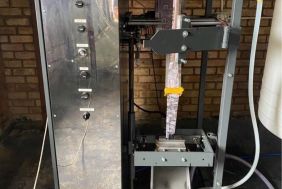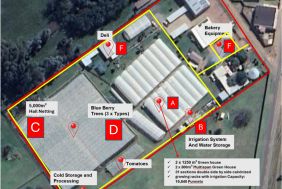10 Factors That Influence The Value Of Your Business
10 Factors That Influence The Value Of Your Business
Bronwen Barnard
09 September 2025
Summary
Business owners interested in selling their companies may wonder how to get the most out of their hard work. They often turn to accountants, financial planners or business brokers to understand and identify the various factors that influence the value of their business.
But, although these people can offer important advice, it’s always a good idea to invest in a business valuation that can help you accurately determine the fair market value of your business.
During business valuations, there are key factors that professionals use to determine the value of a company. If you’re a business owner or an entrepreneur looking to begin the process of selling your business, here are ten factors that may or may not influence the value of your business.
1. The Type Of Business
The type of business you run will influence the value of your company. Take, for example, a franchise business, such as Steers or Car Service City. Because franchise businesses are so recognisable and have an established customer base, a success formula, and support, they often command higher prices than other types of businesses.
On the other hand, if you have a specific-based business in the technical industry or a seasonal business, your company's value may be lower because there will be fewer buyers interested in purchasing that type of business.
2. The Asset Base Of The Business
Your business’s asset base is another factor that will influence its value. The asset base includes any equipment, land or buildings that the business owns.
Two different businesses with the same net profits would not necessarily have the same value if they had different asset bases.
An engineering firm with a very high asset base compared to a retail store with a low asset base may have the same net profits, but the engineering firm would be worth more due to its high asset base.
3. Operating Hours Of The Business
The popular saying “time is money” couldn’t be more true when it comes to the value of your business. What follows here might surprise you, but a business with shorter trading hours will get a higher asking price than one with longer trading hours.
The reason for this is that buyers are often more inclined to purchase businesses with shorter operating hours. Meaning it will give them the freedom to do other things outside of work, such as starting another business or having more leisure time.
The more income you generate in shorter trading hours, the higher your business will be valued.
4. Lease On The Business Premises
A business lease agreement is another factor that can influence the value of your business. Any buyer wants security to operate the business from the agreed premises. The "no lease, no business" principle applies here.
It is very important that a lease agreement has the option for renewal because customers know the location and are adverse to change. This can lead to lost revenue for the new owner if they have to relocate the business.
A shorter lease term, such as six months or one year, will indicate to potential buyers that they may need to negotiate a new lease when the time comes. This can create uncertainty and reduce the value of your business. On the other hand, a longer lease will offer more security and hence make your business more attractive to buyers.
There are, of course, some types of businesses that don’t require fixed premises to operate. Since the COVID-19 pandemic, work-from-home opportunities and e-commerce.businesses have become a whole new field of opportunity.
5. The Growth Potential
A business that can stay up to date on the latest trends and offer products or services that are in demand will have a higher value than one with limited growth opportunities and outdated products.
Buyers want to know that they can invest in a business that won’t become obsolete. They will be keen to learn about any new technology, processes or strategies you have implemented to help the business grow.
Show buyers that your business is well-positioned to take advantage of emerging markets and technologies that could boost revenue.
6. The Financial Structure
The financial structure is hands-down the most important factor affecting your business's value. A strong financial structure is one of the key indicators of a healthy business, so buyers will want to see records and numbers that clearly demonstrate profitability.
The bottom line is that if you have set up a well-structured business with good accounting systems in place, a good track record of creditors and debtors, a solid cash flow, and no hidden debts or unexpected liabilities, then your business will likely have a higher value as more buyers will be interested in it.
7. The Duration Of The Business
How long a business has been running is a major factor in determining its value. The longer it’s been around, the more stability and reliability it will have for potential buyers. With a business that’s been around for a while, there is more evidence of its success.
For example, a loyal client base, established supplier relationships, and a certain degree of brand recognition can all contribute to the higher value of long-standing businesses.
8. Stock Value
The value of the stock is also taken into consideration when calculating the value of a business. One of the biggest debates is usually regarding stock.
One argument is that because the stock is an asset to the business and the buyer will recoup this investment, the price of the business should be calculated with the stock included.
Another argument is that some believe that stock is part of the total amount a buyer has to pay to buy the business and should, therefore, not be part of the value but seen as a return on investment.
Ultimately, the best practice would be to calculate the average stock required to run the business and then see whether the buyer should purchase this as part of the deal. If not, you can always have a stock sale!
9. Risk Factors Associated With The Business
Risk is not something that can be avoided when a business is sold. This means that buyers will take into account the level of risk they are taking by buying your business.
A buyer will look at factors such as the current state of the economy, past performance, and any potential future threats they may face before committing to purchasing the business.
If there are no major risks associated with your business, the value of it will be higher than a similar one that comes with more uncertainty.
10. An Exit Strategy
An exit strategy is where the seller has already considered how they will exit their business before a sale is even put on the table.
This can be seen as an advantage, as it shows that they have already thought through and planned for any potential hiccups that may arise during the transaction process.
An exit strategy allows buyers to have confidence that you are serious about selling your business, and this can help to increase the value of it. It also gives them the peace of mind that if anything goes wrong, they will know what steps you have taken to protect their interests.
An exit strategy where the seller is longer involved in the business after its sold, will also add value to the business. This is because it shows that the seller will help make the transition successful and smooth and thus decreasing the risk of any major disruptions to the business.
Overall, many factors influence the value of a business when it is sold. You need to take note of all of these factors and consider how they will affect the sale price. Doing so ensures that your business is sold for its true worth and not undervalued.
How To Calculate The Value Of A Business
After you have an understanding of the factors that influence the value of a business, it’s time to assess your own to determine how much it is worth.
One of the best ways to do so is to contact professionals to do a business valuation and provide you with an accurate assessment of the fair market value.
If you’re interested in investing in a business valuation, contact us at Business For Sale today! We’ll help you determine your business's true value and leave you with the confidence to make an informed decision.
More Sellers Knowledge Bank
Get the latest information, valuable tips and share in the professional knowledge of business experts on selling a business
Unlocking Opportunities: Selling Kindergarten, Pre-School and Early Childhood Development Centre Franchises Online with Business for Sale
We're excited to announce our latest endeavour aimed at fostering growth and expansion in the early education sector, particularly in the realm of kindergartens, pre-primary schools, and early development centres. At Business for Sale, we recognise the immense value these establishments bring to communities and families. That's why we have the perfect solution to help you grow.
Empowering Franchisors: A Refined Approach for Exponential Sales Growth
Empowering Franchisors: A Refined Approach for Exponential Sales Growth
6 Steps To Selling A Small Business In South Africa.
6 Steps To Selling A Small Business In South Africa.
How Long Will It Take To Sell My Business?
How Long Will It Take To Sell My Business?
How To Increase The Value Of Your Business When Selling
How To Increase The Value Of Your Business When Selling
The Importance of Business Valuation and How Business For Sale Can Assist.
The Importance of Business Valuation and How Business For Sale Can Assist.
Strategic Planning: Maximizing Profitability in Your Business
Strategic Planning: Maximizing Profitability in Your Business
How To Make Your Business Attractive To Buyers
How To Make Your Business Attractive To Buyers
Accurate Business Valuations for Accountants and Financial Planners
As a financial planner or accountant, accuracy is of the utmost importance in order to perform your job effectively. When it comes to clients with businesses, a business valuation is of great importance and can provide you with the information you need to accurately and effectively plan for your client's financial future. In this article, we will discuss the benefits that business valuations hold for accountants and financial planners, as well as explain how Business for Sale can help you.
Factors That Go Into Selling an Accommodation Business
There are a multitude of factors to take into consideration when selling any business, no matter the size. Selling an accommodation business is no different and will require your to prepare and plan effectively in order to get the best price possible. In this article, we will discuss when you should sell your accommodation business and how an accommodation business is valued.
Selling a Business in 2023 Has Never Been Easier
Selling a Business in 2023 Has Never Been Easier
List Your Business in December to Get More Views
If you are thinking of selling your business, then you shouldn't wait for the New Year to list your business on a business brokering platform.
Access to the number one business broking tool to get your business sold.
We've got you covered!
We offer an innovative and intuitive
solution for selling your business, franchise and premises
Promote
your business for sale
Reach
the right audience
Gain
more exposure

Latest businesses for sale
View our latest business listings and be the first to enquire






















